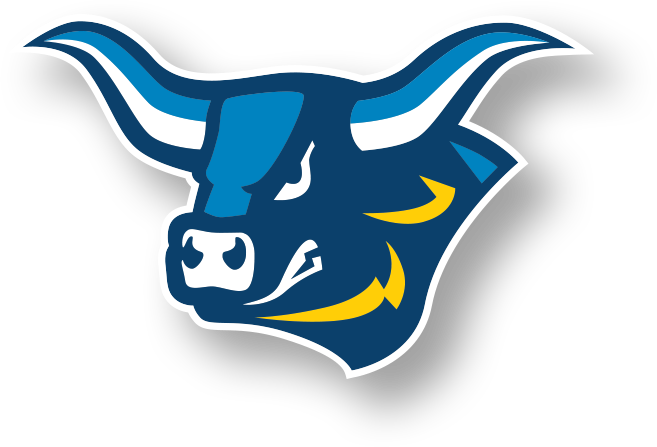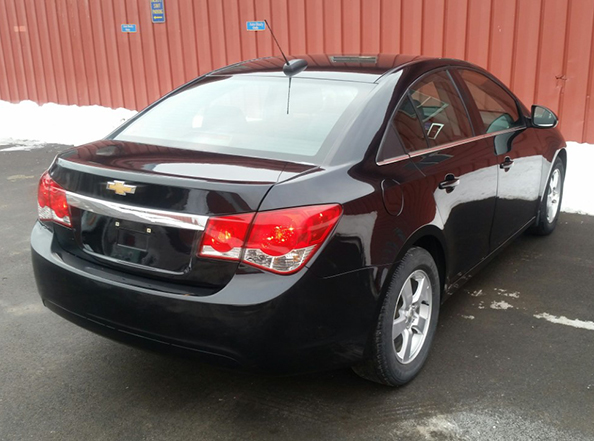At a glance
 Applied learning is at the heart of an Alfred State College (ASC) education, with students gaining the knowledge and skills they need to succeed through hands-on, real-world projects. A terrific example of this is the college’s autobody wreck/rebuild program.
Applied learning is at the heart of an Alfred State College (ASC) education, with students gaining the knowledge and skills they need to succeed through hands-on, real-world projects. A terrific example of this is the college’s autobody wreck/rebuild program.

Applied learning is at the heart of an Alfred State College (ASC) education, with students gaining the knowledge and skills they need to succeed through hands-on, real-world projects. A terrific example of this is the college’s autobody wreck/rebuild program.
Through this learning experience, students in ASC’s autobody repair major are able to enhance their skill sets by fixing wrecked vehicles, and also gain insight into what it’s like to work inside a live collision shop. While students were previously responsible for providing their own vehicles to work on, the vehicles are now secured through funding provided by the Educational Foundation of Alfred, Inc., a private foundation dedicated to improving the Alfred State community through the support of educational programs.
According to Automotive Trades Instructor CJ Tremper, the Ed Foundation possesses a New York State automobile dealer’s license that allows the college to purchase wrecked cars from an auto salvage auction, which are then used for hands-on projects. The Foundation covers the cost of purchasing these cars and also any parts or materials that are needed to bring them back to pre-accident condition.
“This is a huge advantage because now our students have the opportunity to work on rust-free, late-model vehicles without having to spend any money out of their pocket,” Tremper said. “With these cars being quality projects to start with, it also makes the students step up their skills because the end result needs to be very high quality, just as it will be expected of them in the real world.”
According to Tremper, work may range from minor repairs on hoods and fenders to major repairs to the structure of the vehicles. The program covers everything from basic bolt-on-panel replacement, to electrical system repairs, to steering/suspension work, to heating/cooling/air conditioning work, and much more.
“We try to acquire a car that has an appropriate amount of damage so that the students can actually apply in the lab what they had previously learned in the classroom setting,” Tremper said. “This allows us the opportunity to revisit some topics and do a little refresher course as the students actually perform the repairs to the vehicle.”

The time it takes to complete a repair project varies due to the severity of the damage, as well as the skill set of the student working on the vehicle.
“Every student brings a different skill set to the table and sometimes the projects fit right into what they already know and other times the student is learning many new skills as they work their way through the project,” Tremper said.
Once the cars are completed, they are sold through a sealed bid process. The college calculates the total cost of the project and places a minimum price on the vehicle, then makes this information available to the campus population.
“Students, faculty, and staff then have the ability to bid on the car for whatever price they feel is fair,” Tremper said. “The money from the sale goes back to the Ed Foundation for purchase of more project cars.”
The most recently completed vehicle was purchased by Alfred State Director of Sponsored Programs Peter McClain. Work on this vehicle, a 2016 Chevy Cruze, included replacing a quarter panel, the trunk floor, and a partial frame rail, as well as a complete rear body panel replacement.
McClain said, “The Alfred State autobody students did a tremendous job rebuilding the car from two wrecks of the same model. And it looks like new! Professors CJ Tremper and Brad Smith walked my wife and I around the shop where we were able to observe other students completing the same process on another set of cars. This is an incredible project for the Educational Foundation to provide to the students and we plan to enjoy driving this car for many more years.”
Tremper said the wreck/rebuild program is “exactly what our students need in order to see how vehicles are fixed in collision shops across the country on a daily basis.”
“We try to give them as much of a real shop feel as we can so that once they graduate and get a job, things look very familiar to their experience at Alfred State,” Tremper said. “Our hope is that no matter where our students go once they graduate, they will have the skills necessary to get a job in a collision repair shop.”
